imodels
Python package for concise, transparent, and accurate predictive modeling. All sklearn-compatible and easily customizable.
imodels overview
Implementations of different popular interpretable models can be easily used and installed:
from imodels import BayesianRuleListClassifier, GreedyRuleListClassifier, SkopeRulesClassifier # see more models below
from imodels import SLIMRegressor, RuleFitRegressor
model = BayesianRuleListClassifier() # initialize a model
model.fit(X_train, y_train) # fit model
preds = model.predict(X_test) # discrete predictions: shape is (n_test, 1)
preds_proba = model.predict_proba(X_test) # predicted probabilities: shape is (n_test, n_classes)
print(model) # print the rule-based model
-----------------------------
# if X1 > 5: then 80.5% risk
# else if X2 > 5: then 40% risk
# else: 10% risk
Install with pip install imodels (see here for help). Contains the following models:
| Model | Reference | Description |
|---|---|---|
| Rulefit rule set | ?️, ?, ? | Extracts rules from a decision tree then builds a sparse linear model with them |
| Skope rule set | ?️, ? | Extracts rules from gradient-boosted trees, deduplicates them, then forms a linear combination of them based on their OOB precision |
| Boosted rule set | ?️, ?, ? | Uses Adaboost to sequentially learn a set of rules |
| Bayesian rule list | ?️, ?, ? | Learns a compact rule list by sampling rule lists (rather than using a greedy heuristic) |
| Greedy rule list | ?️, ? | Uses CART to learn a list (only a single path), rather than a decision tree |
| OneR rule list | ?️, ? | Learns rule list restricted to only one feature |
| Optimal rule tree | ?️, ?, ? | (In progress) Learns succinct trees using global optimization rather than greedy heuristics |
| Iterative random forest | ?️, ?, ? | (In progress) Repeatedly fit random forest, giving features with high importance a higher chance of being selected. |
| Sparse integer linear model | ?️, ? | Forces coefficients to be integers |
| Rule sets | ⌛ | (Coming soon) Many popular rule sets including SLIPPER, Lightweight Rule Induction, MLRules |
Docs ?️, Reference code implementation ?, Research paper ? More models coming soon!
The final form of the above models takes one of the following forms, which aim to be simultaneously simple to understand and highly predictive:
| Rule set | Rule list | Rule tree | Algebraic models |
|---|---|---|---|
 |
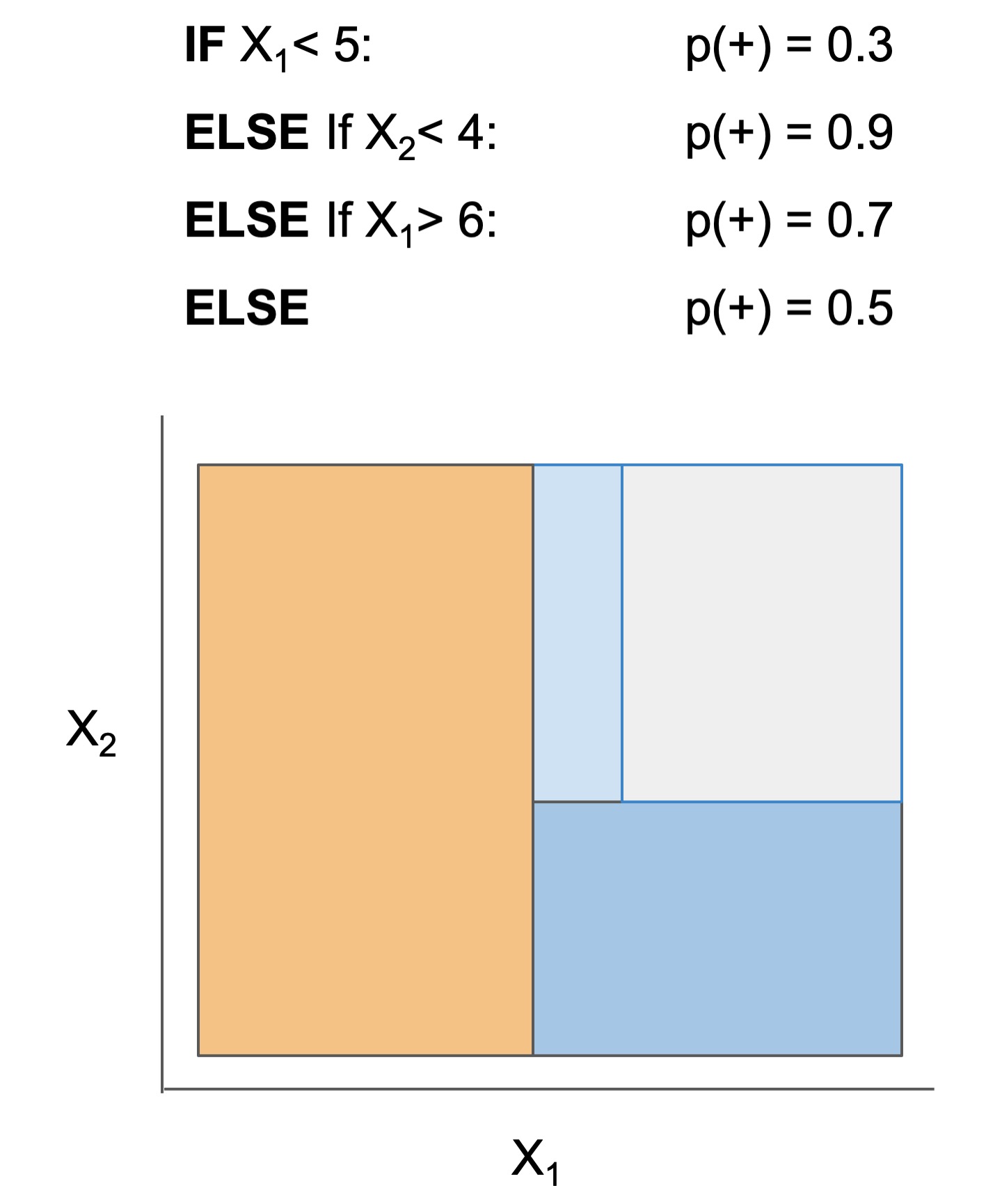 |
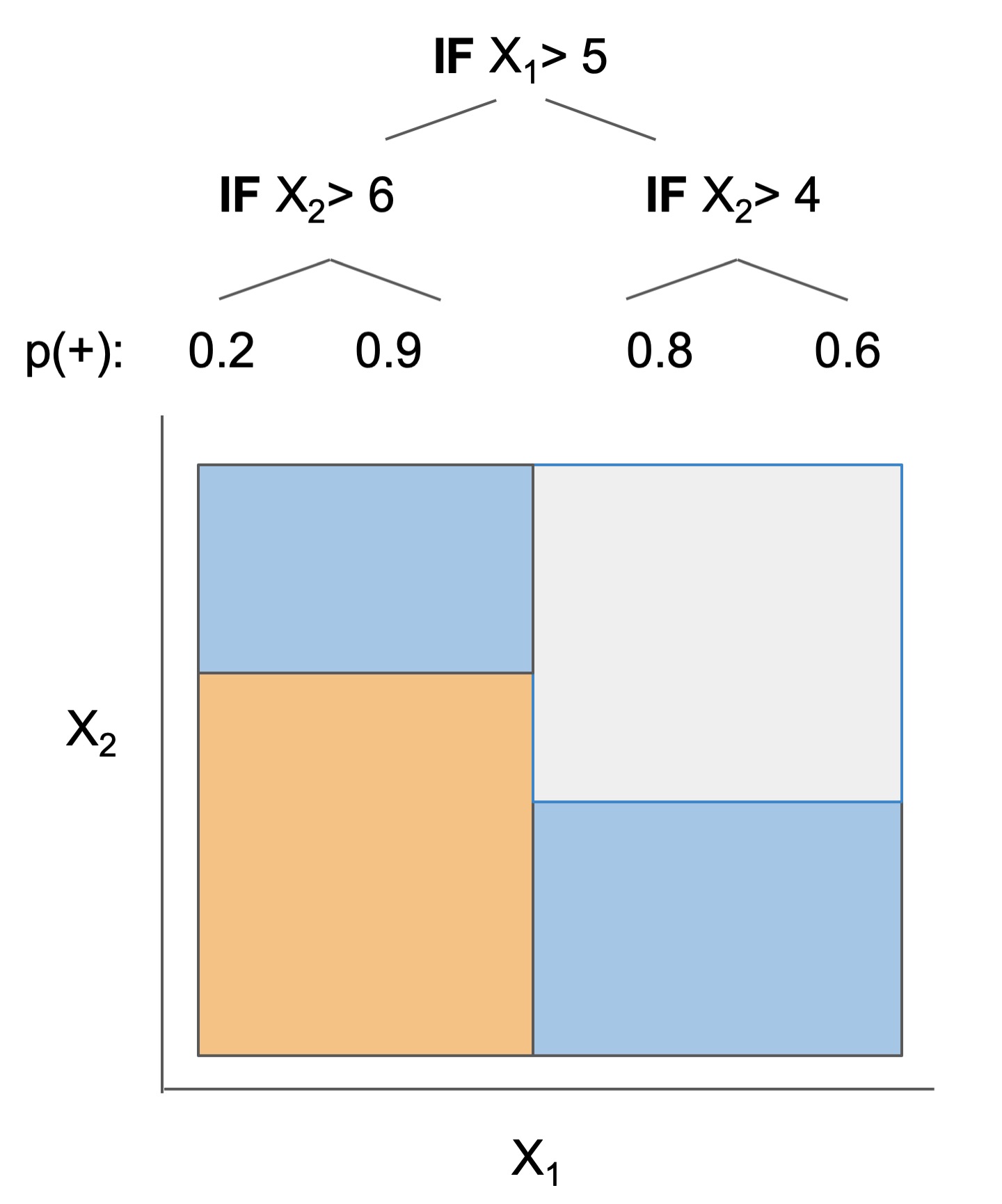 |
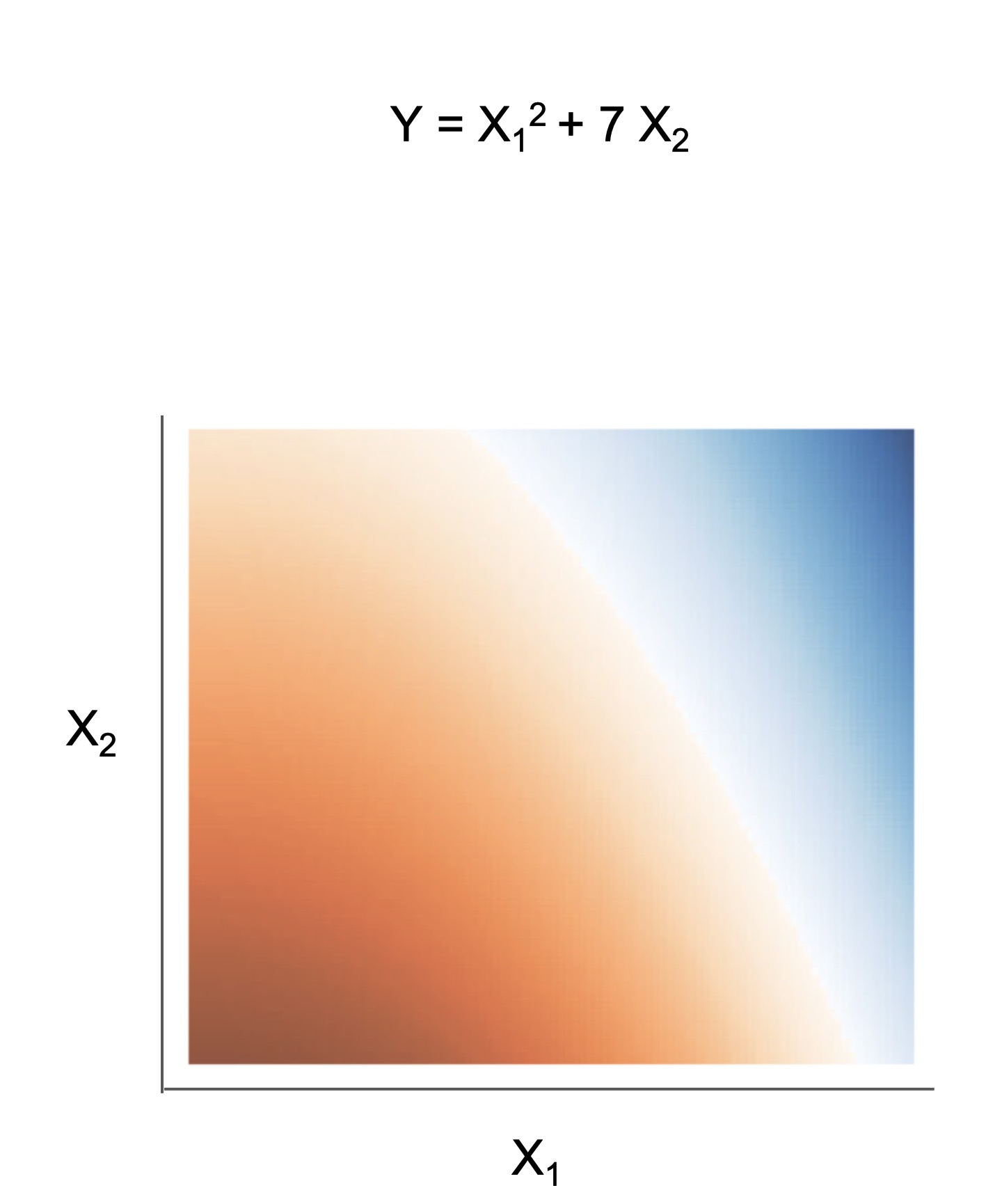 |
Different models and algorithms vary not only in their final form but also in different choices made during modeling. In particular, many models differ in the 3 steps given by the table below.
ex. RuleFit and SkopeRules
RuleFit and SkopeRules differ only in the way they prune rules: RuleFit uses a linear model whereas SkopeRules heuristically deduplicates rules sharing overlap.ex. Bayesian rule lists and greedy rule lists
Bayesian rule lists and greedy rule lists differ in how they select rules; bayesian rule lists perform a global optimization over possible rule lists while Greedy rule lists pick splits sequentially to maximize a given criterion.ex. FPSkope and SkopeRules
FPSkope and SkopeRules differ only in the way they generate candidate rules: FPSkope uses FPgrowth whereas SkopeRules extracts rules from decision trees.See the docs for individual models for futher descriptions.
| Rule candidate generation | Rule selection | Rule pruning / combination |
|---|---|---|
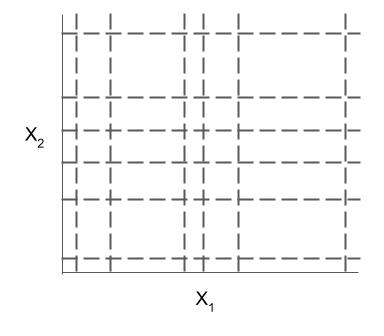 |
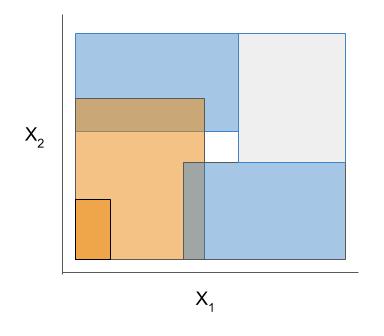 |
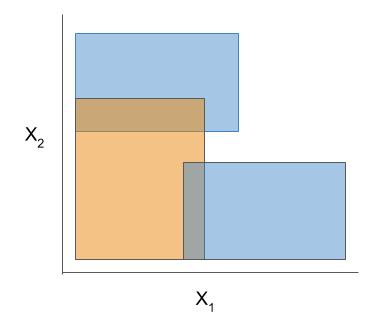 |
The code here contains many useful and customizable functions for rule-based learning in the util folder. This includes functions / classes for rule deduplication, rule screening, and converting between trees, rulesets, and neural networks.
Support for different tasks
Different models support different machine-learning tasks. Current support for different models is given below:
| Model | Binary classification | Regression |
|---|---|---|
| Rulefit rule set | ✔️ | ✔️ |
| Skope rule set | ✔️ | |
| Boosted rule set | ✔️ | |
| Bayesian rule list | ✔️ | |
| Greedy rule list | ✔️ | |
| OneR rule list | ✔️ | |
| Optimal rule tree | ||
| Iterative random forest | ||
| Sparse integer linear model | ✔️ | ✔️ |
References
- Readings
- Reference implementations (also linked above): the code here heavily derives from the wonderful work of previous projects. We seek to to extract out, unify, and maintain key parts of these projects.
- sklearn-expertsys - by @tmadl and @kenben based on original code by Ben Letham
- rulefit - by @christophM
- skope-rules - by the skope-rules team (including @ngoix, @floriangardin, @datajms, Bibi Ndiaye, Ronan Gautier)
- Compatible packages
- Related packages
- Updates
- For updates, star the repo, see this related repo, or follow @csinva_
- Please make sure to give authors of original methods / base implementations appropriate credit!
- Pull requests very welcome!
If it's useful for you, please cite the package using the below, but more importantly make sure to give authors of original methods / base implementations credit:
@software{
imodels2021,
title = {{imodels: a python package for fitting interpretable models}},
publisher = {Zenodo},
year = 2021,
author = {Chandan Singh and Keyan Nasseri and Bin Yu},
version = {v0.2.8},
doi = {10.5281/zenodo.4598963},
url = {https://github.com/csinva/imodels}
}



